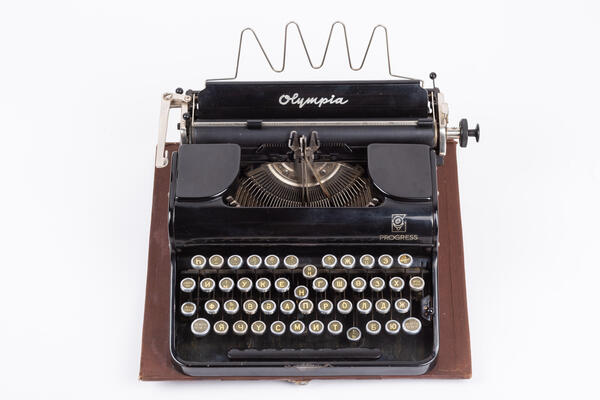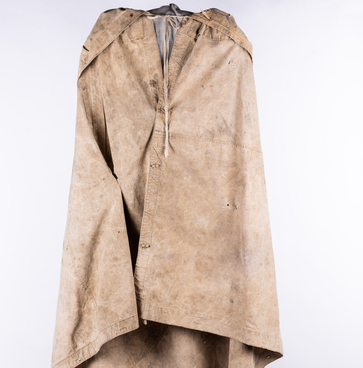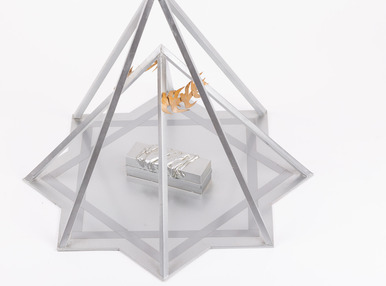The Olympia brand traces its roots to a company that was founded in Berlin, Germany, in 1903, directly after the Allgemeine Elektricitäts-Gesellschaft AG (the General Electricity Company) was established. In the early 20th century, the public was growing increasingly more interested in typing devices, so German manufacturers decided to mass-produce them under the Mignon brand. The flagship product was designed by an engineer named Friedrich von Hefner-Alteneck. He had made several other useful inventions, including a differential arc lamp known as the Hefner lamp. And he was the one to create the world’s first keyboard typewriter, which saw the light of day in 1912.
World War One put an end to further development of this invention, however, as the company employees were tasked with producing military equipment instead. They still made typewriters, but in very limited amounts, no more than 150 per year. It was not until 1921 that the company managed to regain its pre-war production pace. In 1930, the Mignon typewriters were renamed Olympia; the brand was officially registered, and the company launched an assembly line for portable typewriters. The rebranding was inspired by looking forward to the Olympic Games, which Germany was to host in nineteen thirty-six.
The new typewriter range was significantly more diverse. It included such models as Plana, Elite, Robust, Progress, Simplex, and more. In July 1945, Germany began shipping these devices in huge batches to the Soviet Union, as part of WWII reparations.
The Dyurtyuli Local History Museum is proud to present the Olympia Progress model, manufactured in 1931 and featuring the Cyrillic font. This was the personal typewriter of Zıya Mansur, a prominent war poet from the Dyurtyulinsky District.
Zıya Mansur was born in the village of Zitembekovo in 1916. He graduated from school in 1937 and found a job at the district newspaper. Zıya Mansur fought in the Great Patriotic War and was honoured with several medals, including one for the defense of Stalingrad.
It was during the war that he first began to write poetry. In 1953-1955, a lot of Zıya Mansur’s work was published in a satirical magazine called Chayan. He both wrote his own poetry and translated Russian-speaking poets like Vladimir Mayakovsky, Sergey Mikhalkov, and Aleksey Koltsov into Tatar. Zıya Mansur died in Kazan in 1965, due to complications from bronchitis.
World War One put an end to further development of this invention, however, as the company employees were tasked with producing military equipment instead. They still made typewriters, but in very limited amounts, no more than 150 per year. It was not until 1921 that the company managed to regain its pre-war production pace. In 1930, the Mignon typewriters were renamed Olympia; the brand was officially registered, and the company launched an assembly line for portable typewriters. The rebranding was inspired by looking forward to the Olympic Games, which Germany was to host in nineteen thirty-six.
The new typewriter range was significantly more diverse. It included such models as Plana, Elite, Robust, Progress, Simplex, and more. In July 1945, Germany began shipping these devices in huge batches to the Soviet Union, as part of WWII reparations.
The Dyurtyuli Local History Museum is proud to present the Olympia Progress model, manufactured in 1931 and featuring the Cyrillic font. This was the personal typewriter of Zıya Mansur, a prominent war poet from the Dyurtyulinsky District.
Zıya Mansur was born in the village of Zitembekovo in 1916. He graduated from school in 1937 and found a job at the district newspaper. Zıya Mansur fought in the Great Patriotic War and was honoured with several medals, including one for the defense of Stalingrad.
It was during the war that he first began to write poetry. In 1953-1955, a lot of Zıya Mansur’s work was published in a satirical magazine called Chayan. He both wrote his own poetry and translated Russian-speaking poets like Vladimir Mayakovsky, Sergey Mikhalkov, and Aleksey Koltsov into Tatar. Zıya Mansur died in Kazan in 1965, due to complications from bronchitis.



